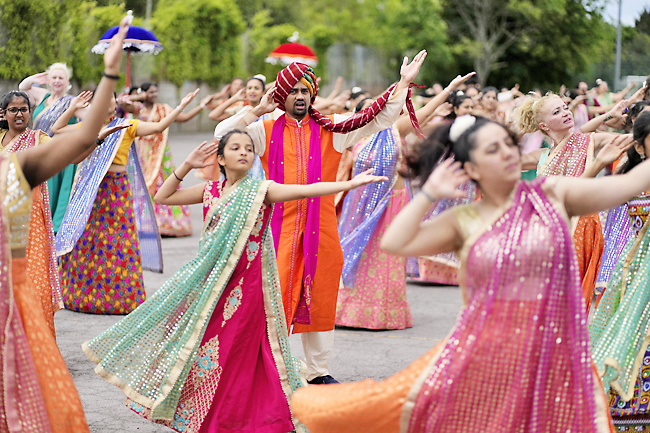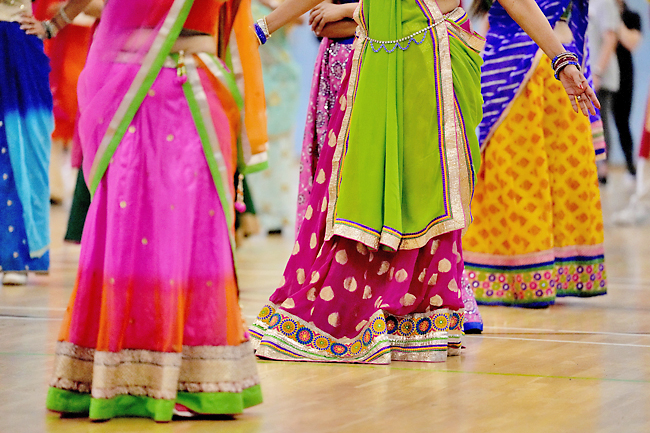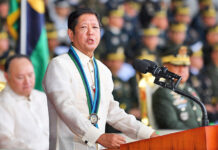Sylvia Hui
LONDON (AP) – When Ajay Chhabra was asked to design a pageant performance to celebrate Queen Elizabeth II’s Platinum Jubilee, he knew what would make the perfect centerpiece: cake.
Not just any cake, but Elizabeth and Prince Philip’s 1947 wedding cake. The 2.7-metre confection was dubbed “the 10,000-mile cake” at the time because it was whipped up with sugar and dried fruit from all corners of the Commonwealth, from South Africa to the Caribbean to Australia and the South Pacific.
Chhabra, a second-generation British Indian with Fijian heritage, wanted to use his segment of Sunday’s Jubilee pageant to highlight how the queen, through her historic 70 years on the throne, united generations of Commonwealth citizens from places as far flung as Fiji.
“We’re not recreating the 1947 wedding of the queen, but creating a sort of homage to it, with all the people and all the diversity that Britain has produced,” he said.
On Sunday, more than 200 performers in vibrant saris will dance to Bollywood tunes around a moving, six-metre-tall version of the queen’s wedding cake, powered by a hidden electric vehicle. Its top tier, featuring a rendition of the queen’s beloved corgis holding aloft a crown, pops up and down on a hydraulic system.
The dancers, who range in age from nine to 79, all have Commonwealth heritage.


“All those young people… they don’t see the world or ‘being British’ the way we did, or our parents did,” Chhabra said. His Bollywood-themed wedding party is just one of many colourful acts to parade down the Mall to Buckingham Palace in London on Sunday, the finale of a busy four-day weekend of festivities marking the monarch’s Platinum Jubilee.
More than 10,000 people from across the United Kingdom (UK) and the Commonwealth have been involved in producing the pageant, which is expected to be seen by one billion people around the world.
A military showcase opens the spectacle, followed by a procession featuring a medley of carnival music, three-story-high beasts, Scottish bagpipers, stunt cyclists, maypole dancers and dozens of animal puppets – all telling the story of the queen’s reign in their own ways.
The pageant will travel a three-kilometre route and end in front of Buckingham Palace, where crowds will sing God Save the Queen. Singers Ed Sheeran, Shirley Bassey and Cliff Richard will be among the celebrities paying tribute.
It’s a huge celebratory moment, and the pageant’s directors aren’t keen to discuss the more controversial aspects of Britain’s legacy in many Commonwealth countries. In the Caribbean, in particular, the Commonwealth has increasingly been characterised by fragmentation, not unity.
Prince William and his wife, Kate, were greeted with anti-slavery protests in March during a royal tour of the Caribbean, and Jamaica’s prime minister bluntly told the couple the country intended to “move on” and remove the queen as head of state, following Barbados’ move last year.
Pageant organisers emphasise that the event is a “people’s pageant”, focussing on how ordinary people are connected “through time, to each other, and to the queen”. It’s a connection that Chhabra feels keenly in his own family. He says the queen is a symbol of continuity that unites his mother’s generation with that of his young daughter, regardless of the time and distance separating the two.
“When I look at my mum’s foundation story, she was nine years old when the queen came to Fiji during her tour of the South Pacific in 1953. You know, her and all of her school friends were waving flags to welcome her,” he said. “That’s an exciting story that she brought with her from Fiji to London in the 1960s.”
His nine-year-old daughter will take part in Sunday’s pageant – an event that will become her story to tell future generations.
“In a world where things are very temporary and polarised, I think there are few things that bring us together,” Chhabra said.



















































